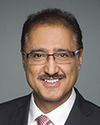Mr. Speaker, we got elected on a commitment to invest in Canadians, to invest in their future, to lower taxes on the middle class and raise them on the wealthiest 1%, to deliver a Canada child benefit that gives more money to nine out of 10 Canadian families, by stopping to send Conservative cheques to millionaires. That is what we promised.
House of Commons Hansard #198 of the 42nd Parliament, 1st Session. (The original version is on Parliament's site.) The word of the day was statistics.






